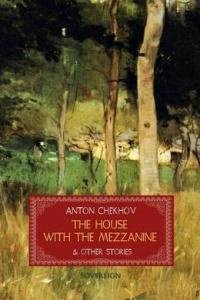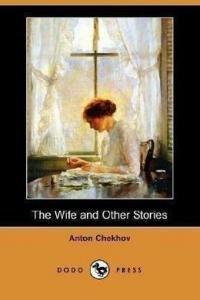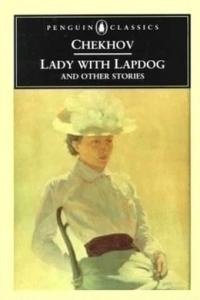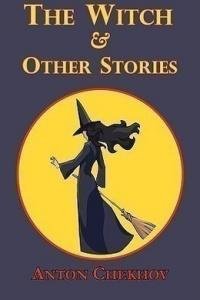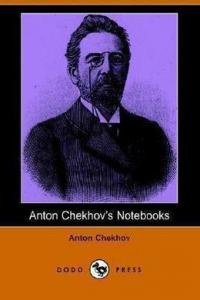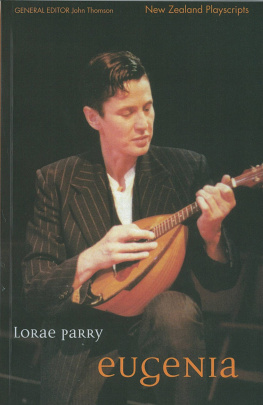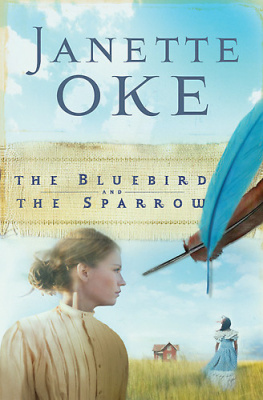The House with the Mezzanine and Other Stories
Anton Chekhov
The House With the Mezzanine
(A Painter's Story)
It happened nigh on seven years ago, when I was living in one of the districts of the J. province, on the estate of Bielokurov, a landowner, a young man who used to get up early, dress himself in a long overcoat, drink beer in the evenings, and all the while complain to me that he could nowhere find any one in sympathy with his ideas. He lived in a little house in the orchard, and I lived in the old manorhouse, in a huge pillared hall where there was no furniture except a large divan, on which I slept, and a table at which I used to play patience. Even in calm weather there was always a moaning in the chimney, and in a storm the whole house would rock and seem as though it must split, and it was quite terrifying, especially at night, when all the ten great windows were suddenly lit up by a flash of lightning.
Doomed by fate to permanent idleness, I did positively nothing. For hours together I would sit and look through the windows at the sky, the birds, the trees and read my letters over and over again, and then for hours together I would sleep. Sometimes I would go out and wander aimlessly until evening.
Once on my way home I came unexpectedly on a strange farmhouse. The sun was already setting, and the lengthening shadows were thrown over the ripening corn. Two rows of closely planted tall firtrees stood like two thick walls, forming a sombre, magnificent avenue. I climbed the fence and walked up the avenue, slipping on the fir needles which lay two inches thick on the ground. It was still, dark, and only here and there in the tops of the trees shimmered a bright gold light casting the colours of the rainbow on a spider's web. The smell of the firs was almost suffocating. Then I turned into an avenue of limes. And here too were desolation and decay; the dead leaves rustled mournfully beneath my feet, and there were lurking shadows among the trees. To the right, in an old orchard, a goldhammer sang a faint reluctant song, and he too must have been old. The limetrees soon came to an end and I came to a white house with a terrace and a mezzanine, and suddenly a vista opened upon a farmyard with a pond and a bathingshed, and a row of green willows, with a village beyond, and above it stood a tall, slender belfry, on which glowed a cross catching the light of the setting sun. For a moment I was possessed with a sense of enchantment, intimate, particular, as though I had seen the scene before in my childhood.
By the whitestone gate surmounted with stone lions, which led from the yard into the field, stood two girls. One of them, the elder, thin, pale, very handsome, with masses of chestnut hair and a little stubborn mouth, looked rather prim and scarcely glanced at me; the other, who was quite youngseventeen or eighteen, no more, also thin and pale, with a big mouth and big eyes, looked at me in surprise, as I passed, said something in English and looked confused, and it seemed to me that I had always known their dear faces. And I returned home feeling as though I had awoke from a pleasant dream.
Soon after that, one afternoon, when Bielokurov and I were walking near the house, suddenly there came into the yard a springcarriage in which sat one of the two girls, the elder. She had come to ask for subscriptions to a fund for those who had suffered in a recent fire. Without looking at us, she told us very seriously how many houses had been burned down in Sianov, how many men, women, and children had been left without shelter, and what had been done by the committee of which she was a member. She gave us the list for us to write our names, put it away, and began to say goodbye.
"You have completely forgotten us, Piotr Petrovich," she said to Bielokurov, as she gave him her hand. "Come and see us, and if Mr. N. (she said my name) would like to see how the admirers of his talent live and would care to come and see us, then mother and I would be very pleased."
I bowed.
When she had gone Piotr Petrovich began to tell me about her. The girl, he said, was of a good family and her name was Lydia Volchaninov, and the estate, on which she lived with her mother and sister, was called, like the village on the other side of the pond, Sholkovka. Her father had once occupied an eminent position in Moscow and died a privy councillor. Notwithstanding their large means, the Volchaninovs always lived in the village, summer and winter, and Lydia was a teacher in the Zemstvo School at Sholkovka and earned twentyfive roubles a month. She only spent what she earned on herself and was proud of her independence.
"They are an interesting family," said Bielokurov. "We ought to go and see them. They will be very glad to see you."
One afternoon, during a holiday, we remembered the Volchaninovs and went over to Sholkovka. They were all at home. The mother, Ekaterina Pavlovna, had obviously once been handsome, but now she was stouter than her age warranted, suffered from asthma, was melancholy and absentminded as she tried to entertain me with talk about painting. When she heard from her daughter that I might perhaps come over to Sholkovka, she hurriedly called to mind a few of my landscapes which she had seen in exhibitions in Moscow, and now she asked what I had tried to express in them. Lydia, or as she was called at home, Lyda, talked more to Bielokurov than to me. Seriously and without a smile, she asked him why he did not work for the Zemstvo and why up till now he had never been to a Zemstvo meeting.
"It is not right of you, Piotr Petrovich," she said reproachfully. "It is not right. It is a shame."
"True, Lyda, true," said her mother. "It is not right."
"All our district is in Balaguin's hands," Lyda went on, turning to me. "He is the chairman of the council and all the jobs in the district are given to his nephews and brothersinlaw, and he does exactly as he likes. We ought to fight him. The young people ought to form a strong party; but you see what our young men are like. It is a shame, Piotr Petrovich."
The younger sister, Genya, was silent during the conversation about the Zemstvo. She did not take part in serious conversations, for by the family she was not considered grownup, and they gave her her babyname, Missyuss, because as a child she used to call her English governess that. All the time she examined me curiously and when I looked at the photographalbum she explained: "This is my uncle. That is my godfather," and fingered the portraits, and at the same time touched me with her shoulder in a childlike way, and I could see her small, undeveloped bosom, her thin shoulders, her long, slim waist tightly drawn in by a belt.
We played croquet and lawntennis, walked in the garden, had tea, and then a large supper. After the huge pillared hall, I felt out of tune in the small cosy house, where there were no oleographs on the walls and the servants were treated considerately, and everything seemed to me young and pure, through the presence of Lyda and Missyuss, and everything was decent and orderly. At supper Lyda again talked to Bielokurov about the Zemstvo, about Balaguin, about school libraries. She was a lively, sincere, serious girl, and it was interesting to listen to her, though she spoke at length and in a loud voiceperhaps because she was used to holding forth at school. On the other hand, Piotr Petrovich, who from his university days had retained the habit of reducing any conversation to a discussion, spoke tediously, slowly, and deliberately, with an obvious desire to be taken for a clever and progressive man. He gesticulated and upset the sauce with his sleeve and it made a large pool on the tablecloth, though nobody but myself seemed to notice it.
When we returned home the night was dark and still.

